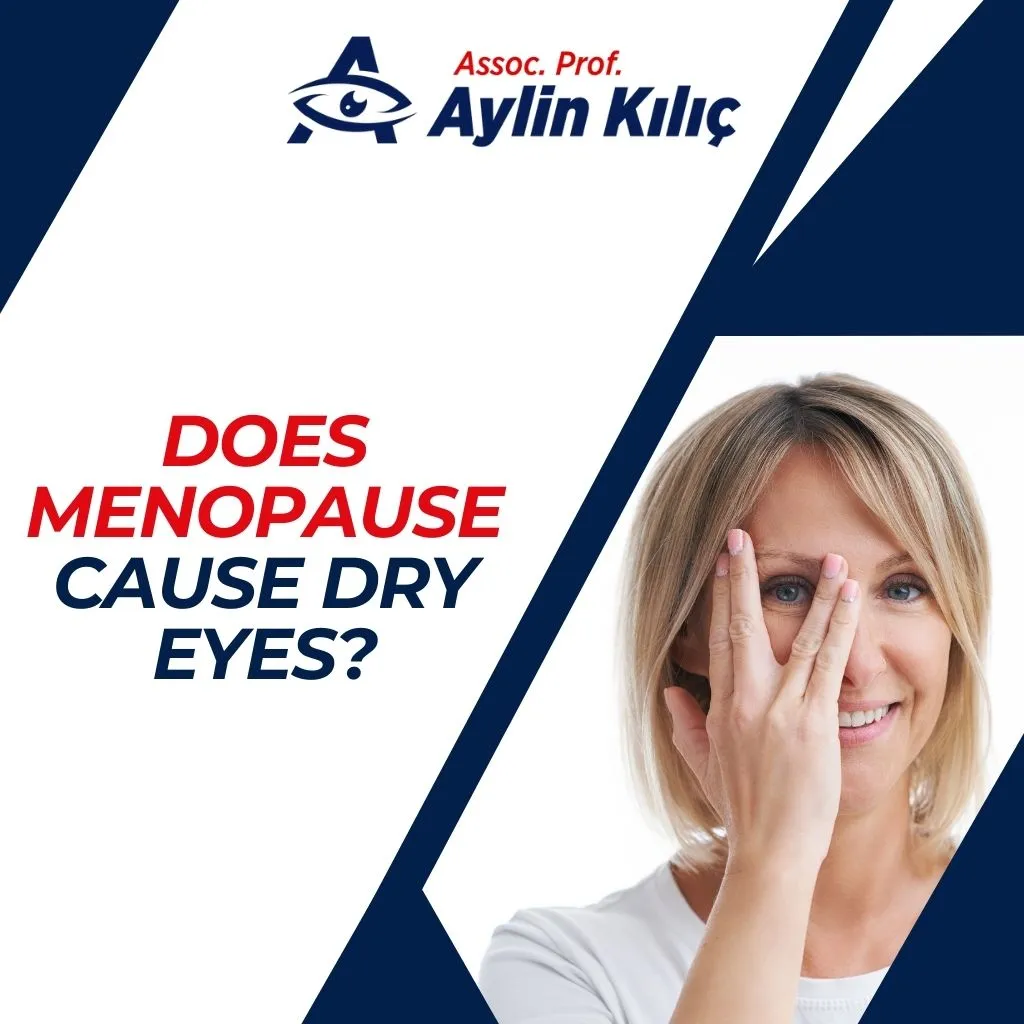
Menopause is a natural biological process that every woman goes through as she ages. It marks the end of a woman’s reproductive years, typically occurring in her late 40s to early 50s. During this time, the body undergoes significant hormonal changes, including a decrease in estrogen production. While most people are aware of the common symptoms of menopause such as hot flashes and mood swings, many may not realize that menopause can also have an impact on eye health, specifically causing dry eyes.
Dry eye syndrome is a condition in which the eyes do not produce enough tears or the tears evaporate too quickly, leading to discomfort, irritation, and even vision problems. While dry eyes can affect anyone at any age, women going through menopause are particularly prone to developing this condition due to the hormonal changes they experience. In fact, studies have shown that women are more likely than men to suffer from dry eyes, and the risk increases with age, peaking around the time of menopause.
The Link Between Menopause and Dry Eyes
Estrogen is a hormone that plays a crucial role in maintaining the health of the eyes. It helps to regulate the production of tears and maintain the proper balance of oil and water in the tear film. When estrogen levels drop during menopause, the tear glands may not function as efficiently, leading to a decrease in tear production and an increase in tear evaporation. This imbalance can result in dry eyes and other related symptoms such as burning, stinging, redness, and blurred vision.
In addition to hormonal changes, other factors associated with menopause can contribute to dry eye syndrome. For example, aging can lead to a decrease in tear production and quality, as well as a thinning of the mucous layer that helps to lubricate the eyes. Certain medications commonly used to treat menopausal symptoms, such as hormone replacement therapy, can also have a drying effect on the eyes. Furthermore, lifestyle factors such as smoking, prolonged screen time, and exposure to environmental irritants can exacerbate dry eye symptoms in menopausal women.
What You Need to Know
If you are experiencing symptoms of dry eyes during menopause, it is important to seek treatment to alleviate discomfort and prevent complications. Here are some key points to keep in mind:
1. Schedule an eye exam: If you are experiencing persistent dry eye symptoms, it is important to see an eye care professional for a comprehensive eye exam. The doctor can evaluate the health of your eyes, determine the underlying cause of your dry eyes, and recommend appropriate treatment options.
2. Use artificial tears: Over-the-counter artificial tears can provide temporary relief from dry eye symptoms by lubricating the eyes and replenishing moisture. There are many different types of artificial tears available, so it may take some trial and error to find the one that works best for you.
3. Practice good eye hygiene: To help prevent and alleviate dry eyes, it is important to maintain good eye hygiene habits. This includes blinking regularly, taking breaks from extended periods of screen time, using a humidifier in dry environments, and avoiding exposure to smoke and other irritants.
4. Consider prescription treatments: In some cases, over-the-counter artificial tears may not provide enough relief for severe dry eye symptoms. Your eye care professional may recommend prescription eye drops, ointments, or oral medications to help manage your condition.
5. Manage underlying health conditions: Certain medical conditions such as diabetes, thyroid disorders, and autoimmune diseases can contribute to dry eye syndrome. Managing these conditions effectively can help improve the health of your eyes and reduce dry eye symptoms.
FAQs
Q: Can menopause cause permanent damage to the eyes?
A: While menopause can lead to dry eye syndrome and other eye-related symptoms, it is unlikely to cause permanent damage to the eyes. With proper treatment and management, most women can find relief from dry eye symptoms and maintain good eye health during and after menopause.
Q: Are there any lifestyle changes that can help alleviate dry eye symptoms during menopause?
A: Yes, making certain lifestyle changes can help alleviate dry eye symptoms during menopause. This includes staying hydrated, eating a balanced diet rich in omega-3 fatty acids, avoiding smoke and other irritants, using a humidifier in dry environments, and practicing good eye hygiene habits.
Q: Are there any natural remedies that can help with dry eyes during menopause?
A: Some women find relief from dry eye symptoms by using natural remedies such as warm compresses, flaxseed oil supplements, and acupuncture. However, it is important to consult with a healthcare professional before trying any alternative treatments to ensure they are safe and effective for your specific condition.
In conclusion, menopause can have a significant impact on eye health, leading to dry eye syndrome and related symptoms. By understanding the link between menopause and dry eyes and taking proactive steps to manage the condition, women can maintain good eye health and quality of life during this transitional period. If you are experiencing dry eye symptoms during menopause, be sure to seek professional guidance and explore appropriate treatment options to find relief and support optimal eye health.
